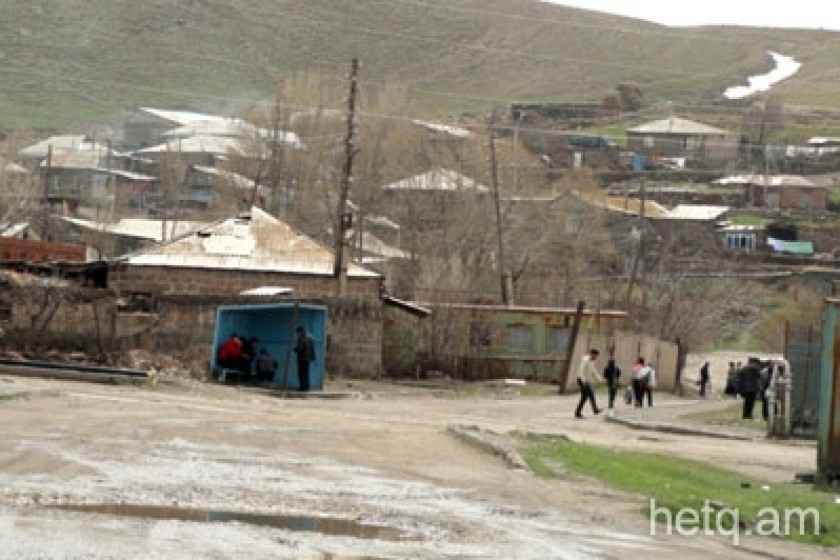
Moush Dialect Dominates in Lori’s Kamo Village
When Robert Ghazaryan, Mayor of Kamo, a rural community of 1,570 in the Armenia’s northern region of Lori, heard the news that three families had shut their doors and left for Russia, he expressed amazement and then denied the story.
"It ain’t true. Sure there’s about 80-100 people who go abroad for seasonal work but not entire families. Kamo is a village of refugees. So now you’re telling me these people are once again on the road to exile?"
In the mid 1930s, many refugees from the Daron Province of western Armenia, mainly hailing from Moush, resettled in Kamo The dominant dialect still remians that of Moush.
He told me that the community wants to maintain its kindergarten but that there’s no proper building in which to house it. "I’ve taken the matter up with the government. The roads need repairing as well," he said.
In fact, Kamo is neither a poor nor rich rural community. Mayor Ghazaryan says that compared to neighboring villages, the amount of untilled land in Kamo is much less.
Back in the Soviet era one could see hectares of beets planted. Today, however, no one in the village plants beets, arguing that the prices offered by the Akhuryan Sugar Plant are too low.
There are many who have taken out loans in Kamo. The majority view is that without credit one can’t really stay in agriculture.
Anoush Haroutyunyan says she’s been taking out loans for the past 12 years and that she pays right on time. "But I haven’t seen anything positive come out. It’s like I’m working for the banks all year round. Some credit reps came to the village a few days ago and boasted that the loan rates had been dropped to 20%. They got to be kidding.They’d have to drop to at least 6-7% for us villagers to benefit at all."
55 year-old Zarzand Gorgoryan is probably the most optimistic resident in Kamo. He has 5 children and spent years working in Russia and Ukraine to feed his family. Now his son makes the trip.
He also has a son residing in Sochi but says that too is a temporary move.
Zarzand owns 2 hectares of land but hasn’t planted much for the past five years. It’s too expensive, he argues.
"They way I figure, it’ll cost me $1,000 just to cultivate the one hectare. The government needs to look out for the rural folk in the country. We need to catch our breath from under all this pressure. I promise you that most will work the land if the conditions are right."
Zarzand has never taken out a loan and says he’d rather starve than get caught up in the credit trap.
"I will stay here even if it means to remain hungry," declares Zarzand, adding that the worst option for anyone is being forced to work in some faraway land.
"I don’t want my kids to wind up as refugees in an alien culture. I guess you can call me a patriot."
 Videos
Videos Photos
Photos
Write a comment